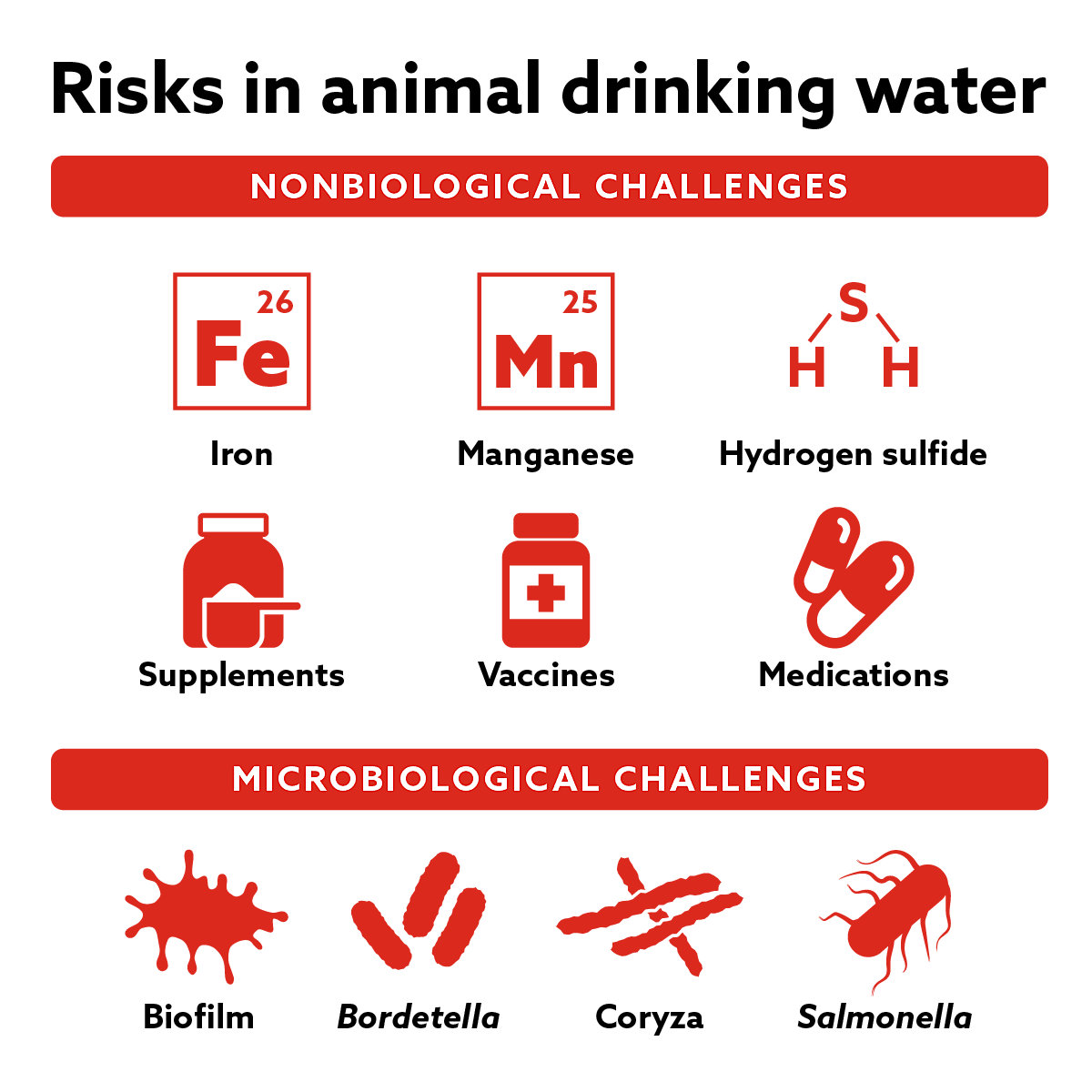“We see some things added during the production cycle — like supplements, vaccines, medications — that can harbor bacteria growth,” said Downs. “If bacteria are allowed to grow through lack of sanitation, they can populate inside of water lines. As they go through their lifecycle, they can build up sludge, slime, or biofilm that can plug valves and openings at the drinker. Even with sanitation, if it isn’t at a proper level of efficacy, bacteria can work its way from the drinker back through the water lines.”
Poor water quality can also introduce microbiological challenges that can affect whole herds or flocks. “Bacterial issues, such as Bordetella, are very infectious and can lead to secondary infections and mortality issues. Coryza in chickens is another big one that can be caused by lack of water-system sanitation,” Downs said.
It’s important to understand what you’re dealing with in your water. Routinely having your operation’s drinking water tested can give you a good picture of overall quality.
Has the antibiotic-free movement affected drinking water quality challenges?
According to Downs, without antibiotics, it’s harder for flocks to recover if they encounter health challenges through their environment. Animal performance and health will consequently suffer continuously. So, it’s that much more important to maintain adequate sanitation and keep water lines clean to help reduce risk from that potential source of pathogens.
What’s a good solution for water sanitization?
First, you need to know what’s in your water. Both BVS and Kemin can help you with water testing through Kemin’s Customer Laboratory Services Team. This team of scientists can perform several analyses and help you make informed decisions. Once you know what you are dealing with in a water source, Downs said chlorine dioxide has been a reliable solution for his team’s water experts. “Particularly with bacteria like Bordetella and Escherichia coli, effective water sanitation with chlorine dioxide has really made an impact,” Downs added.
It’s a strong disinfectant that’s effective at a wide range of pH levels. Unlike other commonly used products like chlorine or hydrogen peroxide, chlorine dioxide has much higher efficacy and can deliver superior results in water quality management as well as animal performance and health.
4 Reasons to Test Your Water and Feed
More about chlorine dioxide
PRO-OXINE® AH (manufactured by Bio-Cide International, a Kemin Company) is a broad-spectrum stabilized chlorine dioxide disinfectant. It is proven to reduce pathogen exposure through drinking water systems by reducing and controlling slime buildup in water lines.
To learn more about a water-quality management system and how it can benefit your operation, contact your Kemin or BVS representative.
Best Veterinary Solutions, Inc. is a leader in innovative animal health solutions from the world’s highest quality manufacturers. Our mission is to manufacture and supply products at the most reasonable cost with the highest standards of service in the industry.
The company’s water quality services include:
- Equipment installation
- Equipment servicing
- Customer training
- Technical support
- Testing and sampling



